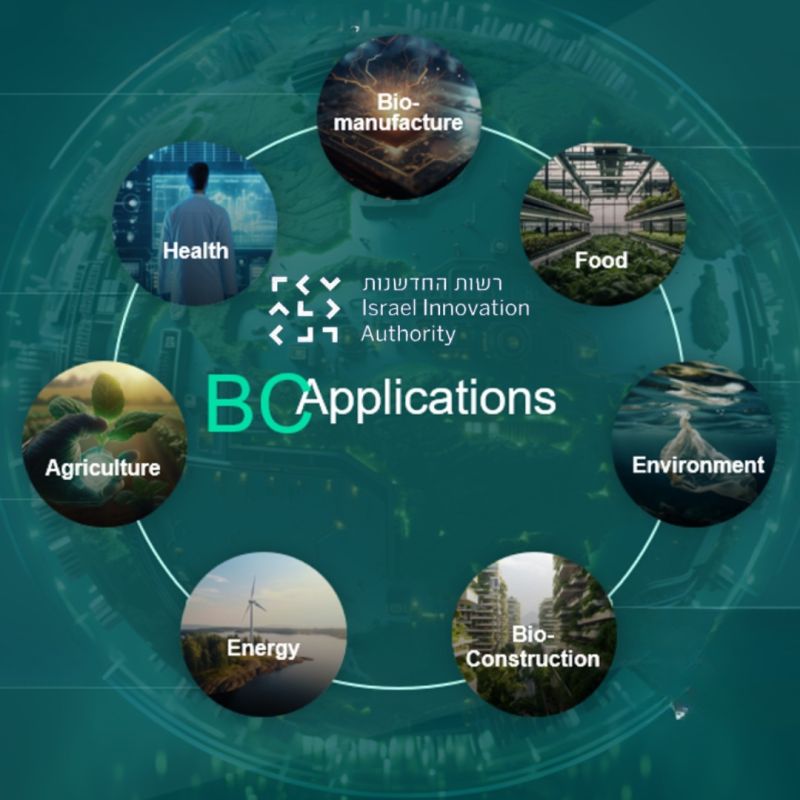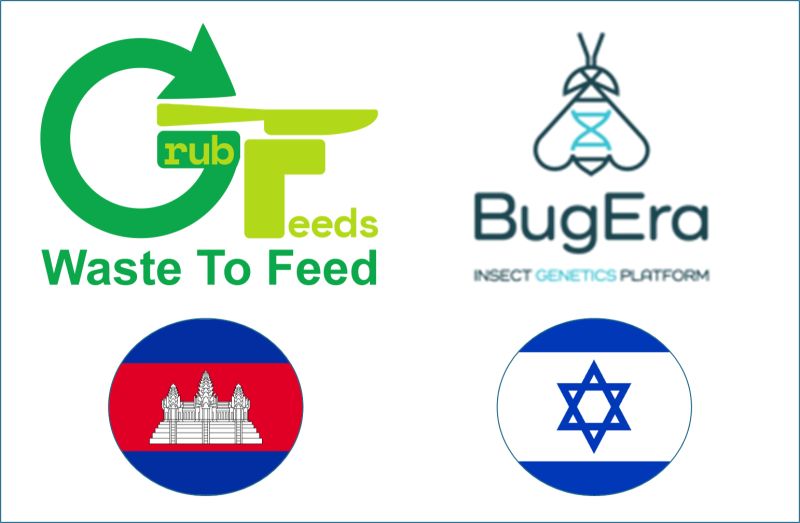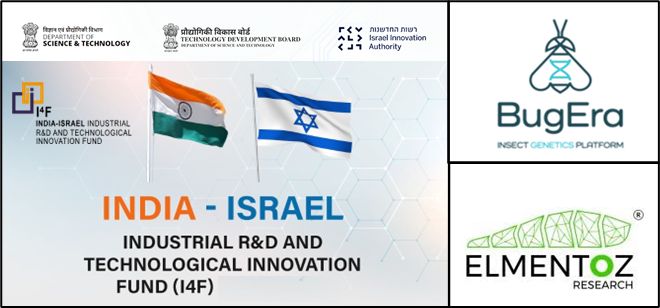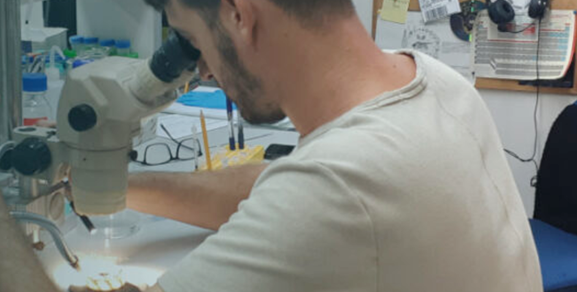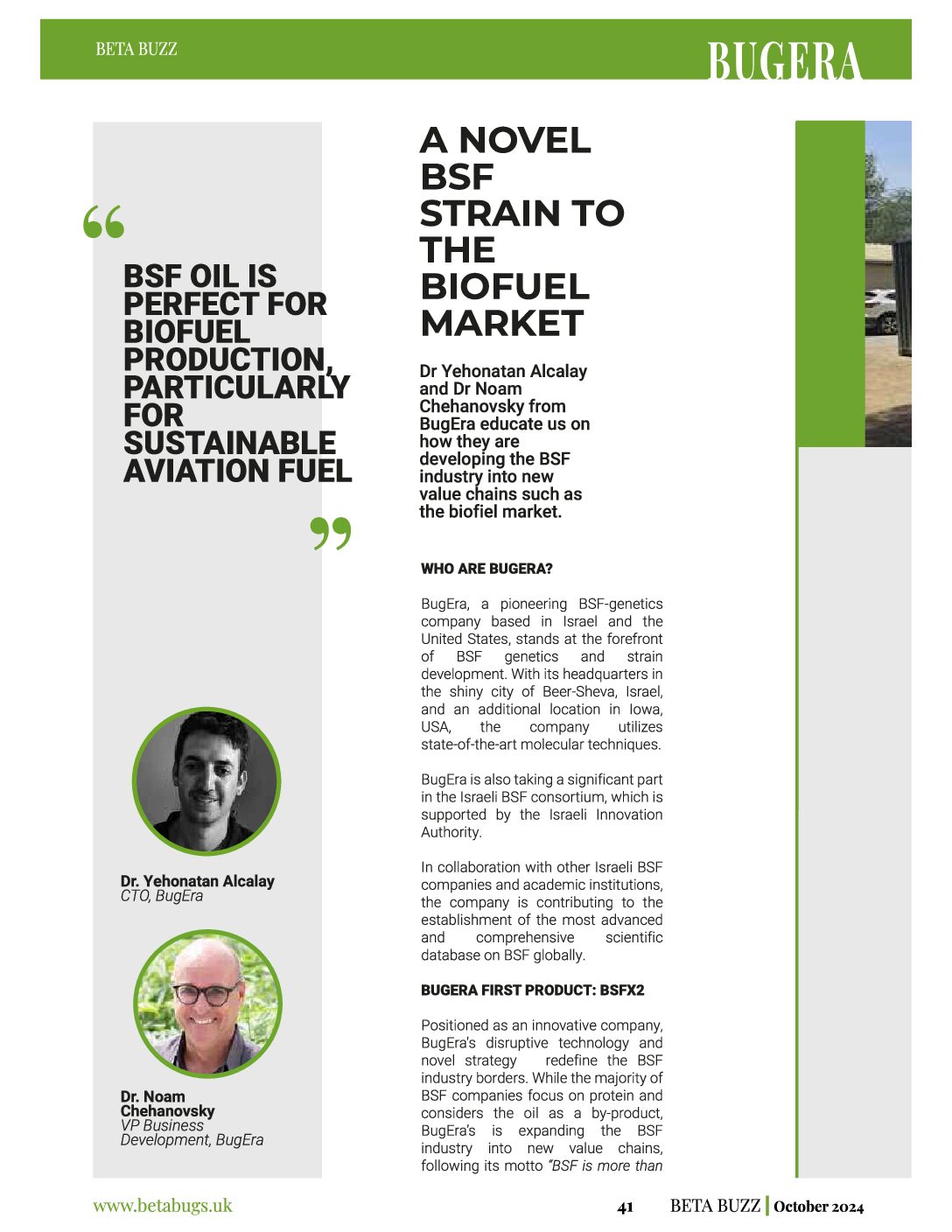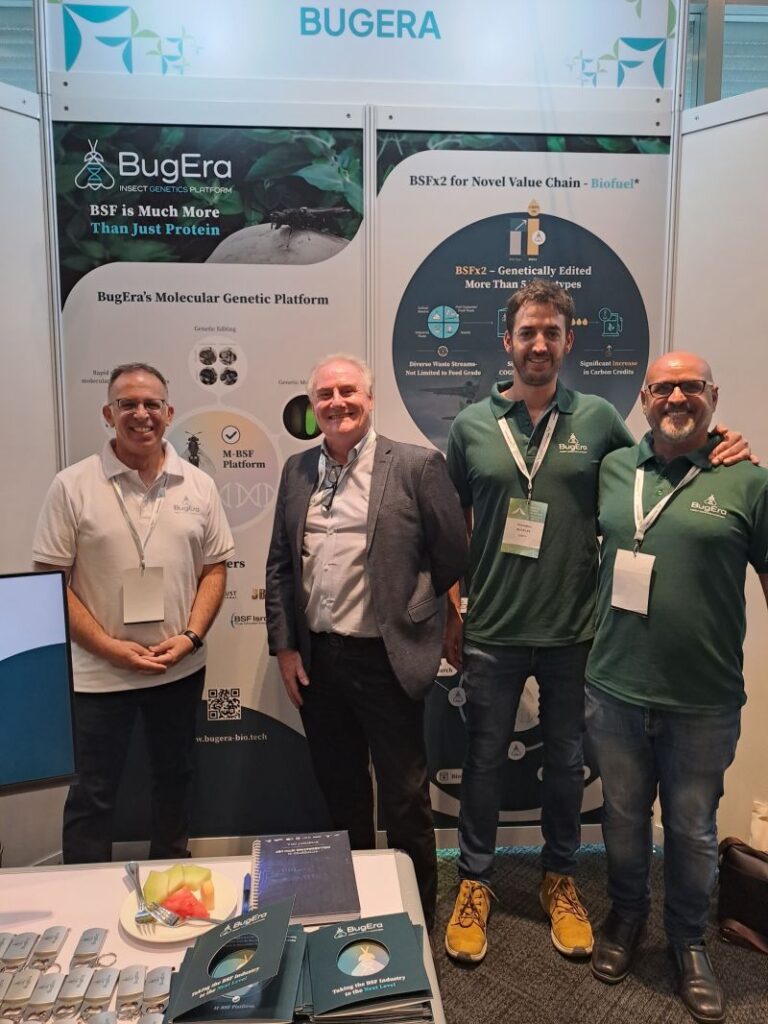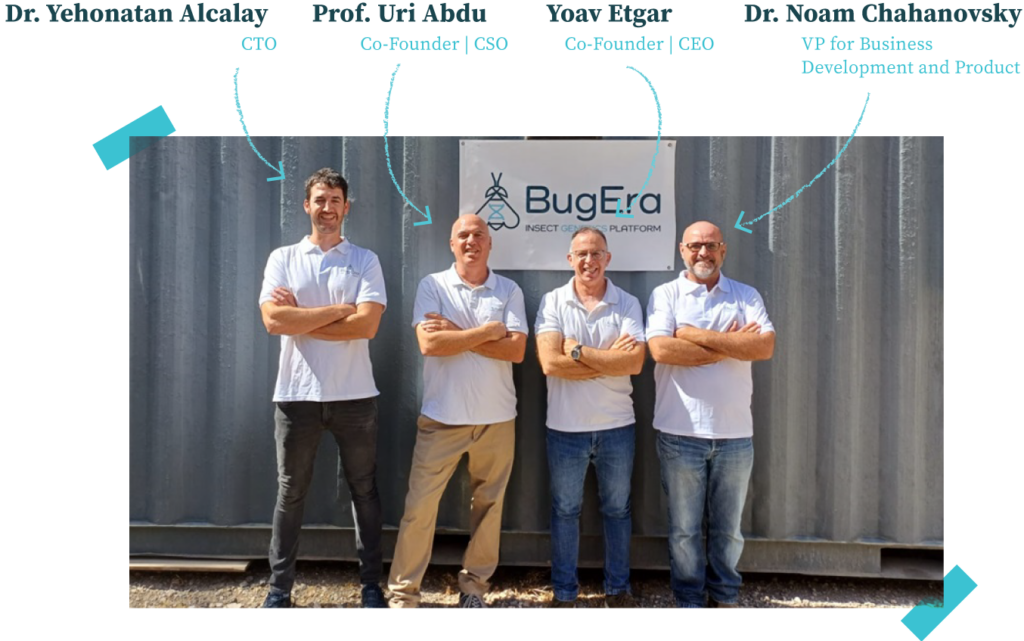Taking insect farming
to the next level
Using state-of-the-art genetic technologies, BugEra develops enhanced performance customized novel Black Soldier Fly (BSF) strains to maximize the business and sustainable potential of the BSF industry.
BugEra enables the creation of novel value chains, applications, and markets based on innovative circular economy principles.
The Need
The global climate crisis, coupled with the growing human population, presents an unprecedented existential threat. One of the main causes of global warming is greenhouse gas (GHG) emissions, a byproduct of the modern human lifestyle.
Organic waste is responsible for 20-25% of global GHG emissions.
Aviation, long-haul trucking, and marine transportation account for 9-10% of GHG emissions, and true; sustainable energy alternative for liquid fuels are not yet in sight.
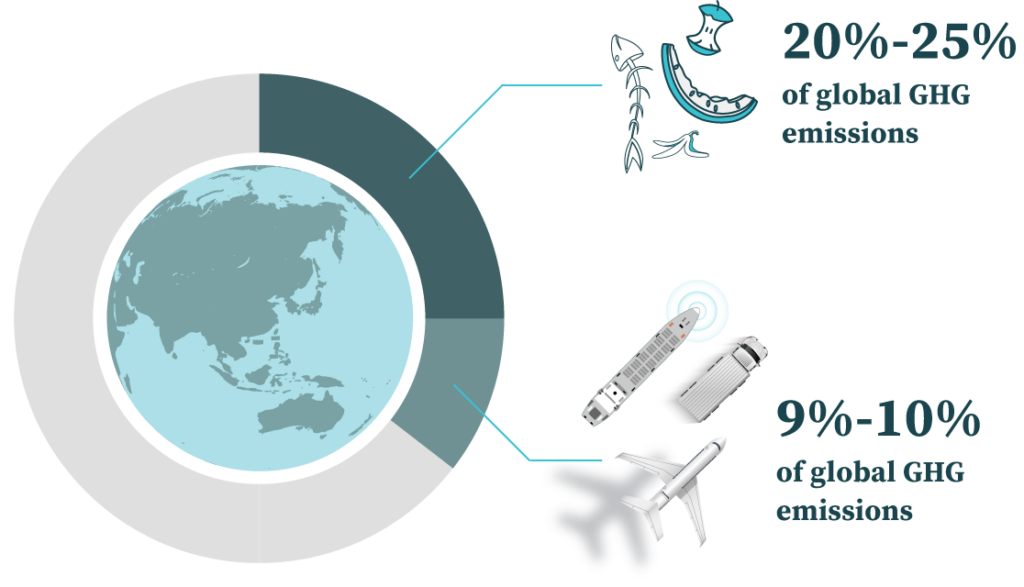
Transitioning to a circular bio-economy and leveraging natural solutions for effective waste management are essential for reducing GHG emissions from organic waste.
Transitioning to a circular bio-economy and leveraging natural solutions for effective waste management are essential for reducing GHG emissions from organic waste.
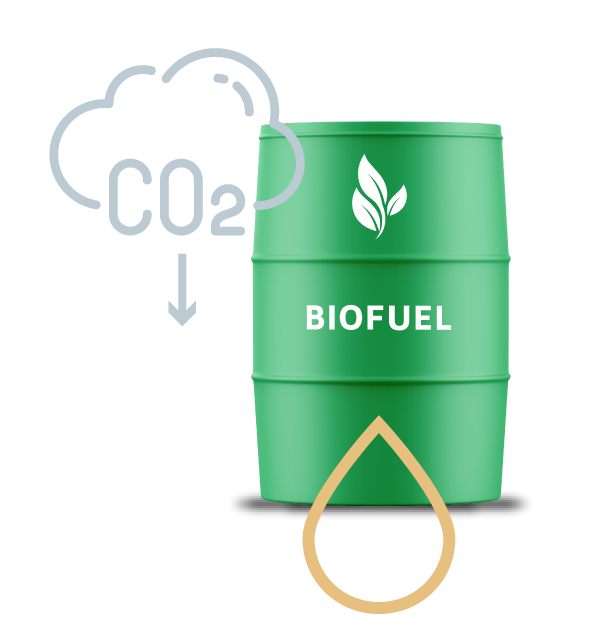
Biofuel is used today for the above transportation means. Biofuel blends are composed of diesel and crop oil (e.g., soy, corn, UCO), which are used to produce biodiesel, renewable diesel, and sustainable aviation fuel.
Using biofuels can reduce GHG emissions by up to 80% compared to diesel.
Therefore, the fuel industry is expected to double biofuel production in the next 5-7 years. However, industry growth is constrained by the availability of sustainable lipids to meet the increasing demand and is in pursuit of alternative and novel oil sources.

Biofuel is used today for the above transportation means.
Biofuel blends are composed of diesel and crop oil (e.g., soy, corn, UCO), which are used to produce biodiesel, renewable diesel, and sustainable aviation fuel. Using biofuels can reduce GHG emissions by up to 80% compared to diesel.
Therefore, the fuel industry is expected to double biofuel production in the next 5-7 years.
However, industry growth is constrained by the
availability of sustainable lipids to meet the increasing demand and is in pursuit of alternative and novel oil sources.
The BSF
The Black Soldier Fly (BSF) , the hero of our story, is a harmless insect and nature’s best decomposer. Known for its remarkable ability to upcycle organic waste of nearly any origin, into high-quality protein and oil, sold for farm animals (poultry, swine’s), aquaculture, and pet feed. Additionally, while BSF oil is a perfect fit for biofuel, its low yield has prevented it
from being commercially viable.
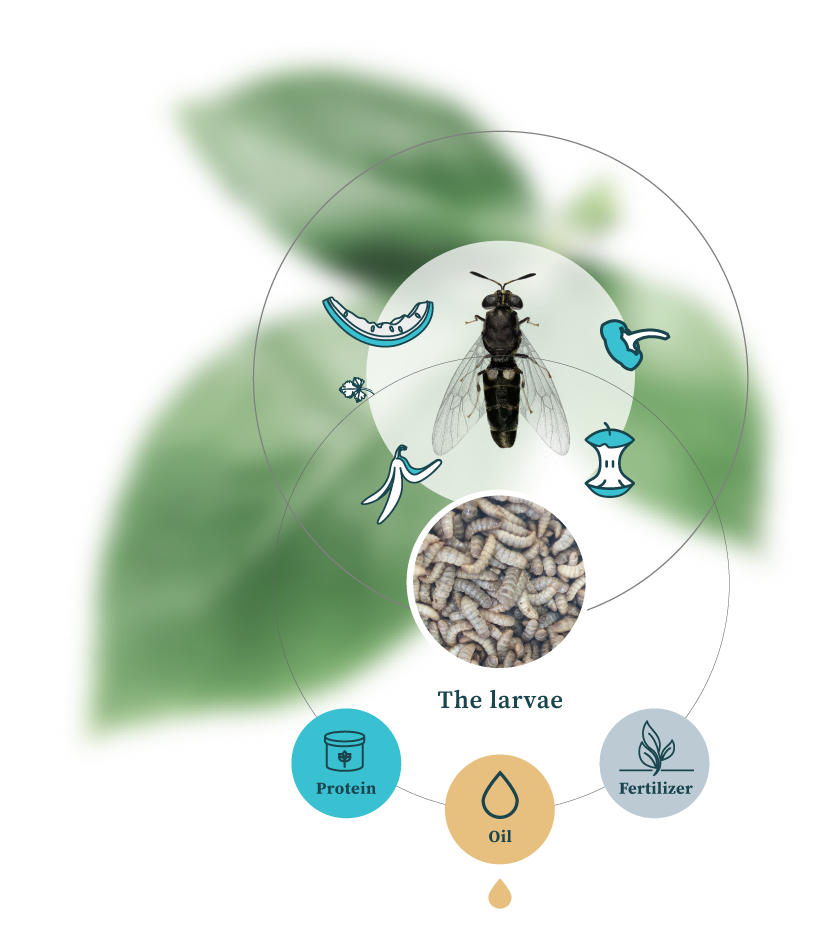
Our Innovation
In less than two years, BugEra has developed the Molecular BSF Platform (M-BSF Platform), a state-of-the-art system for rapid and efficient geneticediting and genetic modifications of BSF strains. This platform enables BugEra to develop customized BSF strains with enhanced traits, meeting current and future industry needs to expand the BSF industry by
creating novel value chains.



Partners

One of the top 10 largest fuel companies worldwide, and a global leader in biodiesel production – product market fit

Impact

BugEra’s core technology – the M-BSF platform and the BSFx2 targets the biofuel
market while addressing at least four UN SDGs.
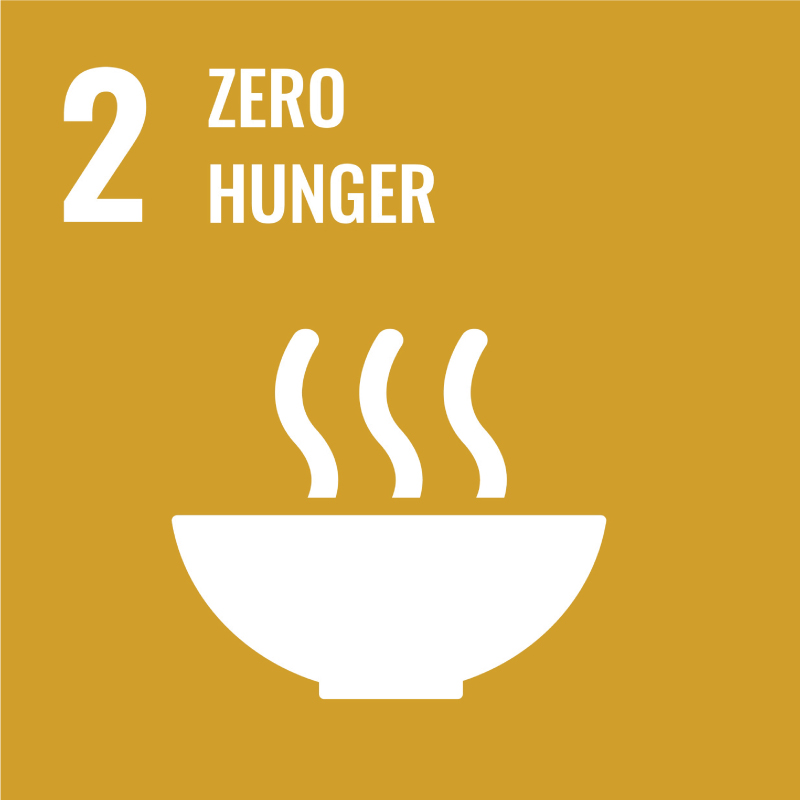
M-BSF Platform is the core technology for future biodegradable biopesticide supporting a resilient agricultural and increasing productivity
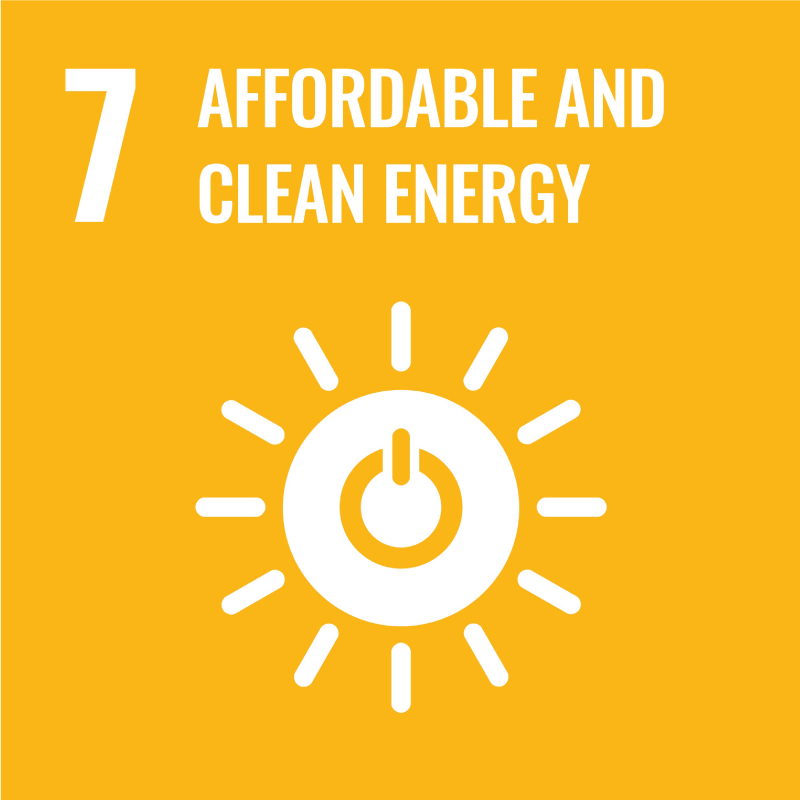
Novel and highly sustainable lipids for cleaner fossil-fuel production

Our technology fundamentally creates novel bioeconomy and new areas of bio manufacturing taking organic waste to oil to clean liquid fuel
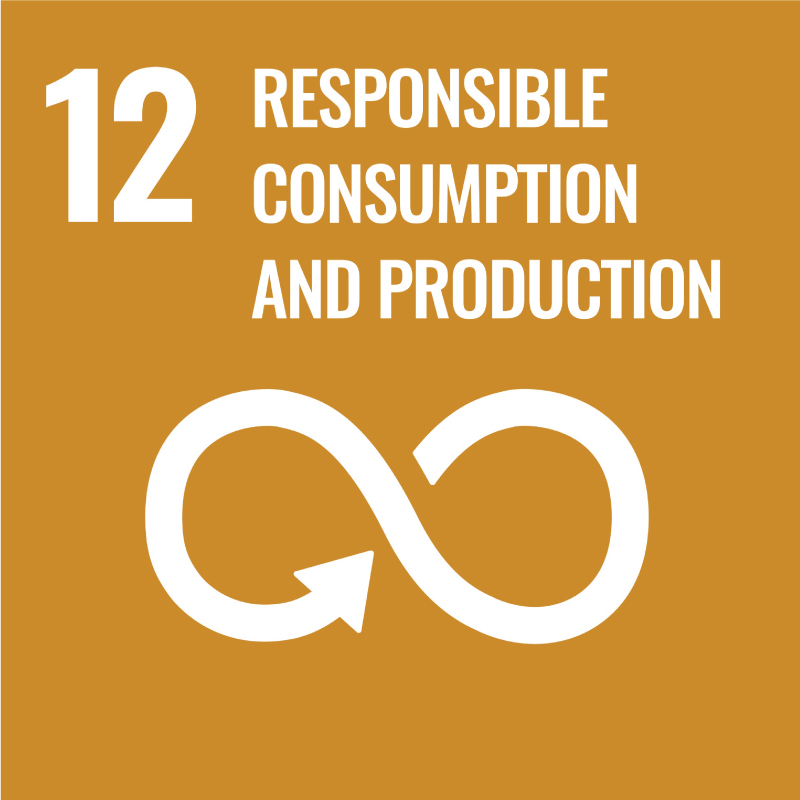
Upcycling more and non feed grade organic waste for more sustainable products, increasing circular economy principles
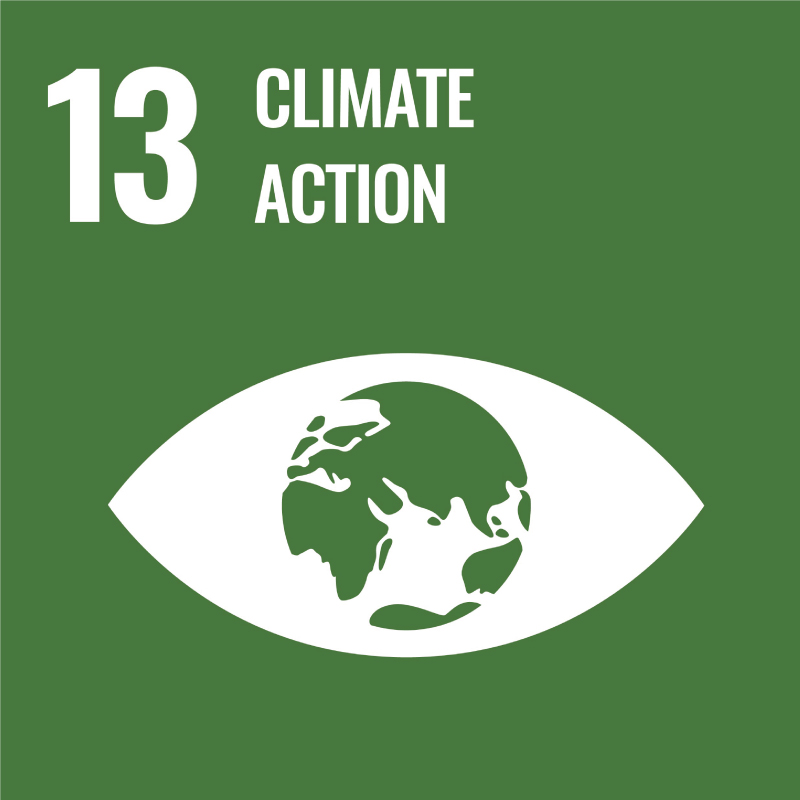
Our technology fundamentally expands the circular economy, reduces greenhouse gas emissions from current organic waste management and liquid fuels
We believe, that the potential of Insect farming (InsecTech), and BSF in particular, is far from being realized. Our strains are enablers for huge potential growth for a carbon negative future by enhancing organic waste upcycling, adopting innovative circular economy principles that take bioeconomy and biomanufacturing to the next level.
Media
About BugEra (Bugheera):
Insect Biotechnology for a Sustainable Future
Insect Biotechnology for a Sustainable Future
BugEra, a U.S.-Israeli start-up rooted in Beer Sheva, is a deep tech transfer from the Life Science Department at Ben-Gurion University (BGU).
Founded in 2021 by Dr. Anna Melkov, Prof. Uri Abdu and Yoav Etgar. BugEra’s management team brings a wealth of experience in business and insect genetics.
Yoav Etgar, the CEO, is an execution expert with over 20 years of experience in global operations and business.
Prof. Uri Abdu, the company’s CSO, is the Founder and Head of the Insect Genetics Lab at BGU since 2004.
Dr. Yehonatan Alcalay, the CTO, leads the technological vision and execution of the company, with over 13 years of experience in academic and industrial management roles specializing in insect genetics.
Dr. Noam Chahanovsky, the VP for Business Development and Product, holds a PhD in plant genetics and has over 15 years of experience in the Agtech innovation ecosystem.




